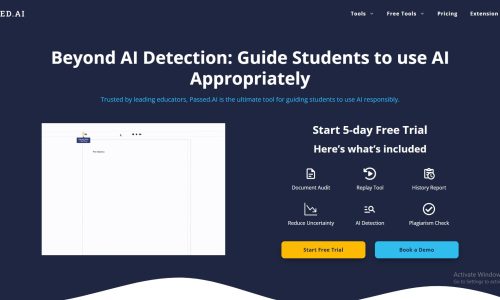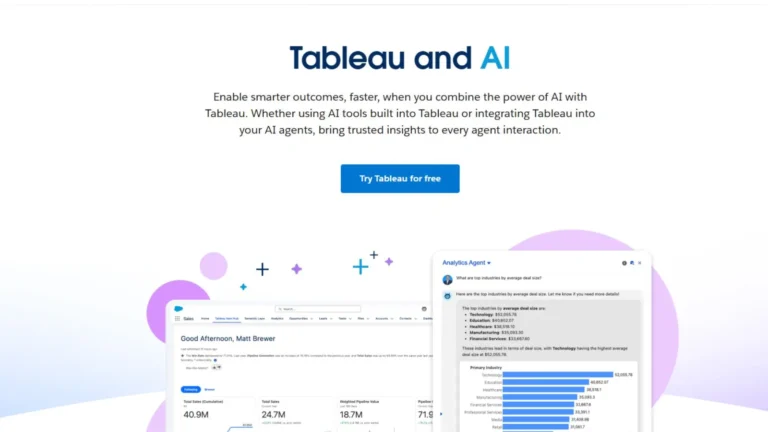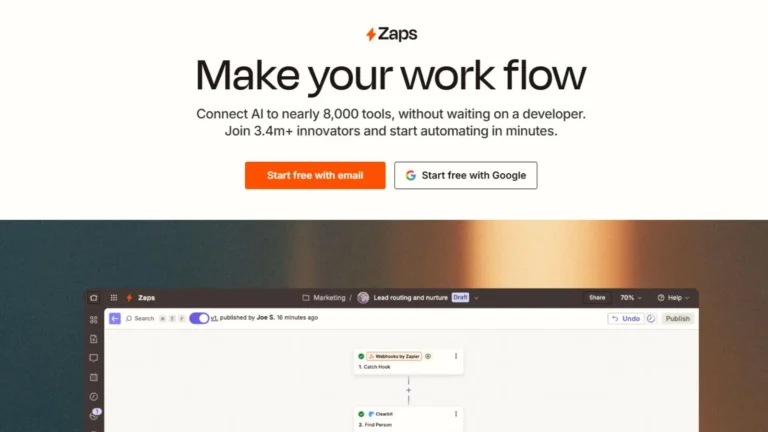Whereas today, artificial intelligence (AI) does not limit itself only by solving routine computations or automating the basics. Top-tier artificial intelligence has been able to show remarkable performance recently as it has overcome arduous human evaluation, such as that during coding interviews, medical licensing exams, and the bar test. These so-called “Passed AIS” have shown the ability to match or cross performance at the human level of standardised tests, promoting enthusiasm and anxiety in industries.
But what does it mean to “pass” a human exam? And what are the implications of education, employment and society?
What Is Passed AI?
“Passed AI” refers to AI fashions which can successfully whole and regularly excel in exams at the start designed to evaluate human expertise, reasoning, and problem-solving competencies. This consists of big language models (LLMS) consisting including Openai’s GPT-4, Google’s Gemini, and Anthropic’s Claude, which have established competence in:
1. LSAT and bar exams (regulation)
2. USMLE(which means United States Medical Licensing Examination)
3. GRE, SAT, GMAT (standardised testing)
4. AP checks (high college degree)
Coding interviews and laptop technological know-how challenges
Such results presuppose that the model has the sensitivity to understand and implement advanced principles, reason well, and manoeuvre different question types from multiple-choice to essay forms.
Advantages of Passed AI
1. Interpretation
The passed AIS can act as an on-demand supervisor, available 24/7, that can simulate the status of the survey and the status of the examination to explain advanced subjects to solve problems. No matter where in the world, students can benefit from personal support, often for free or at low cost.
2. Help professionals in complex areas
Doctors, lawyers and engineers pass AIS can use AIS as a Copilot – while presenting the second view, summarises the rules or detects errors. For example, a physician can use AI to cross-check a diagnosis based on symptoms and laboratory results, improving both accuracy and confidence.
3. Fast learning and applying
Employees and students can use AI to speed up learning, quickly understand the new domain and prepare for the certification exam. AI can tailor the learning path for a person’s strengths and weaknesses, making the education process more efficient.
4. Better efficiency in workflows
Organisations can integrate AI to analyse contracts, write code, prepare legal documents or review medical literature – such tasks require considerable human competence. It releases professionals to focus on high-level strategy and creativity.
5. Barely rating for AI
The passing exam provides an average scale for AI skills. This allows researchers to compare models, identify strengths and weaknesses and trace progress in the logic and understanding of the machine.
Disadvantages of Passed AI
1. False Sense of Understanding
Just because an AI can pass an exam doesn’t mean it understands the content humanly. These models are trained on large datasets and use statistical patterns, not true comprehension. Their answers may appear correct, but could be based on shallow or non-transparent reasoning.
2. Ethical Concerns in Education
AI tools that can solve entire exams or assignments raise serious concerns about academic integrity. Students might use them to cheat rather than learn, undermining the purpose of education. Schools and universities are already struggling to adapt.
3. Job Displacement in Knowledge Work
AI that can pass law or medical exams raises fears of automation in white-collar professions. While AI isn’t replacing doctors or lawyers yet, it’s increasingly capable of performing tasks like document review, basic legal research, or diagnostic triage, potentially threatening entry-level roles.
4. Bias and Inaccuracies
Passed AIS can reflect the biases in their training data or generate incorrect responses that sound convincing. In high-stakes areas like law or healthcare, this could lead to harmful decisions if used without oversight.
5. Overreliance and De-skilling
Professionals who rely too much on the AI recommendations may be at risk of losing very important skills in the long run. Similar to how GPS reduces our natural way of navigating, we blindly rely on AI and may lose useful skills without meaning to.
The Future of Passed AI
Passed AI models will only improve. As the training data becomes richer and properly run, more advanced, AIS will be able to pass even more complex, open assessments. However, the correct value of these devices is in how people choose to use them.
Education systems, employers and decision makers must develop the pioneers. New learning models must include AI readiness. The exam can require more focus on important thinking and low on rotten memories. Regulation needs to ensure AI technologies are shielded to ensure their use stays safe and transparent enough.
Conclusion
The mark “Passed AI” is an important point in the development of artificial intelligence. We look at the merger of the machine’s efficiency with human cognitive domains by demonstrating that machines can master human studies. The benefits are huge – more intelligent professional equipment than access to global education – but that’s why risks. With some powerful techniques, the challenge is not what AI can do, but how sensibly we can choose to use it.




